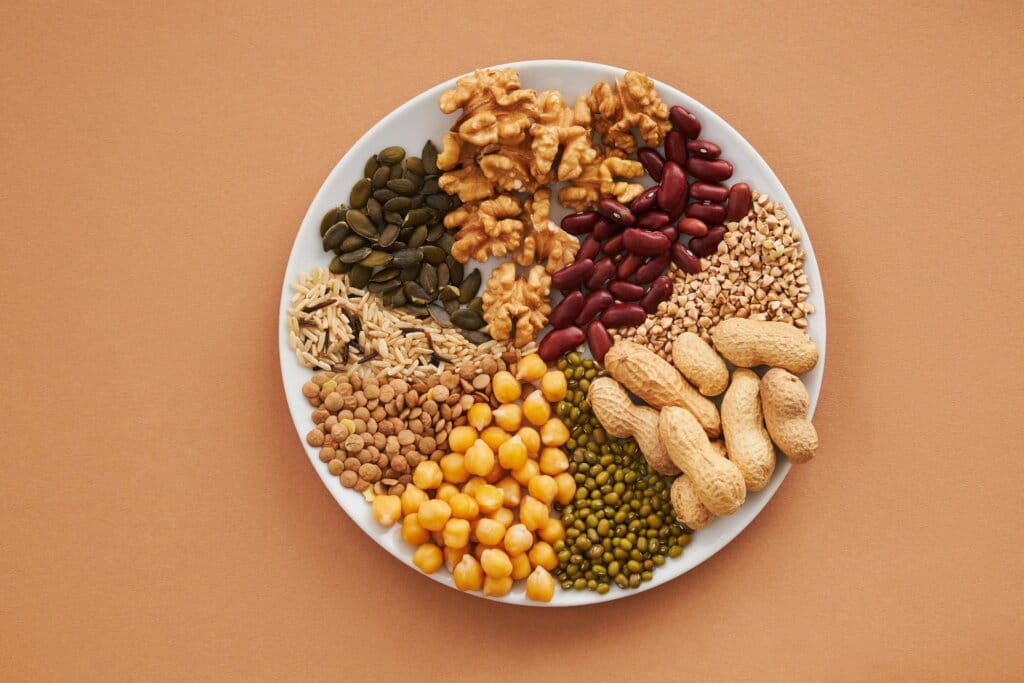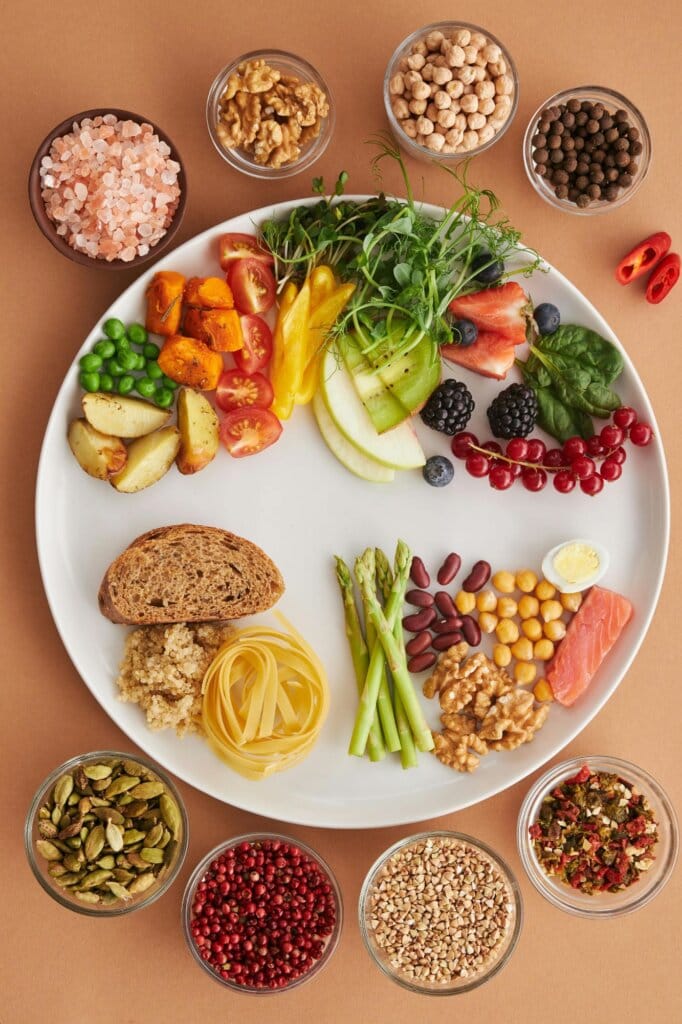A balanced diet is crucial for achieving good health, enhancing energy levels, and reducing the risk of chronic illnesses.
Even with its significance, there are many myths surrounding what truly defines a nutritious diet.
These misconceptions frequently create confusion and lead to poor eating habits.
This article seeks to clarify prevalent misunderstandings and highlight the truth regarding a nutritious diet.
What Constitutes a Nutritious Diet?
A nutritious diet consists of a variety of foods that supply all necessary nutrients—carbohydrates, proteins, fats, vitamins, and minerals—in appropriate amounts.
It ensures that your body receives enough energy to function properly, supporting growth, repair, and general well-being.
An ideal balanced meal should comprise:
- Fruits and vegetables (about half your plate)
- Whole grains (one-quarter of your plate)
- Protein sources (one-quarter of your plate)
- Healthy fats in moderation
- Sufficient water intake

Common Misconceptions Regarding a Nutritious Diet
Misconception 1: Carbohydrates Cause Weight Gain
Truth: Carbohydrates are frequently blamed as the primary factor in weight gain.
However, the reality is that not all carbs are harmful.
Complex carbohydrates, found in whole grains, fruits, and vegetables, provide necessary energy and fiber, aiding in the maintenance of a healthy digestive system.
It’s the refined carbohydrates (such as sugary treats and white bread) that should be limited.
Misconception 2: Fats Should Be Completely Avoided
Truth: Fats are vital for hormone production, brain function, and energy supply.
The important factor is to opt for healthy fats found in nuts, seeds, olive oil, and avocados while minimizing trans fats and saturated fats typically found in processed foods.
Completely cutting out fats can result in nutritional deficiencies and imbalances.
Misconception 3: High-Protein Diets Are Always Beneficial
Truth: While protein is essential for muscle repair and growth, excessive intake—particularly from processed meats—can put a strain on the kidneys and elevate the risk of certain diseases.
Balance is essential, and plant-based protein sources like lentils, chickpeas, and tofu are excellent choices to incorporate.
Misconception 4: Skipping Meals Aids Weight Loss
Truth: Skipping meals can result in greater hunger and lead to overeating later in the day.
It can also slow down your metabolism, making it harder to lose weight.
Consuming small, balanced meals consistently helps to sustain energy levels and supports a healthy metabolism.

Misconception 5: All Calories Have the Same Value
Truth: While calories measure energy, not all calories are equivalent.
For instance, 200 calories from vegetables offer vitamins, fiber, and minerals, whereas 200 calories from sugary snacks provide minimal to no nutritional benefits.
Prioritize nutrient-dense foods rather than merely counting calories.
Facts About a Balanced Diet You Should Know
Diversity Is Important
No single item can supply all the nutrients your body requires.
Consuming a broad range of foods guarantees you receive a combination of vital vitamins, minerals, and antioxidants.
Include various fruits, vegetables, grains, and proteins in your meals.
Portion Sizes Are Crucial
Even nutritious foods can contribute to weight gain if consumed excessively.
Be mindful of portion sizes and practice conscious eating by tuning into your body’s signals of hunger and fullness.
Hydration Is Essential for a Balanced Diet
Water is vital for digestion, nutrient absorption, and detoxification.
Drinking sufficient water throughout the day (approximately 8-10 glasses) supports all bodily functions and can help minimize unnecessary snacking.
Local and Seasonal Foods Are More Nutritious
Foods that are in season are fresher, more flavorful, and usually have greater nutritional value than out-of-season produce.
Moreover, purchasing local supports the community and decreases the carbon footprint tied to food transport.
Moderation Over Elimination
Dramatically removing certain food groups can result in nutritional deficiencies and increased cravings.
Instead, embrace moderation by occasionally enjoying treats while sustaining a generally healthy eating routine.
Tips for Maintaining a Balanced Diet
- Prepare Your Meals: Cooking meals ahead of time helps prevent unhealthy food selections and saves time.
- Examine Food Labels: Keep an eye on ingredients, serving sizes, and nutritional information to make healthier decisions.
- Reduce Processed Foods: These often have high levels of salt, sugar, and unhealthy fats. Choose whole, unrefined foods whenever you can.
- Add More Fiber: Foods high in fiber, such as whole grains and vegetables, enhance digestion and help you feel satisfied longer.
- Engage in Mindful Eating: Chew slowly, appreciate your food, and avoid distractions like television or mobile devices during meals.

Conclusion
A balanced diet isn’t about rigid restrictions or depriving yourself of the foods you enjoy.
It’s about making informed choices, practicing moderation, and fueling your body with diverse nutrients.
By clarifying common misconceptions and concentrating on established facts, you can develop a sustainable eating approach that enhances both physical and mental health.
Keep in mind that balance is essential for a healthy lifestyle—so relish your food, remain aware, and nourish your body appropriately!










Great breakdown of balanced diet myths and facts! Misinformation about nutrition can often lead to unhealthy choices, so it’s refreshing to see science-backed insights.